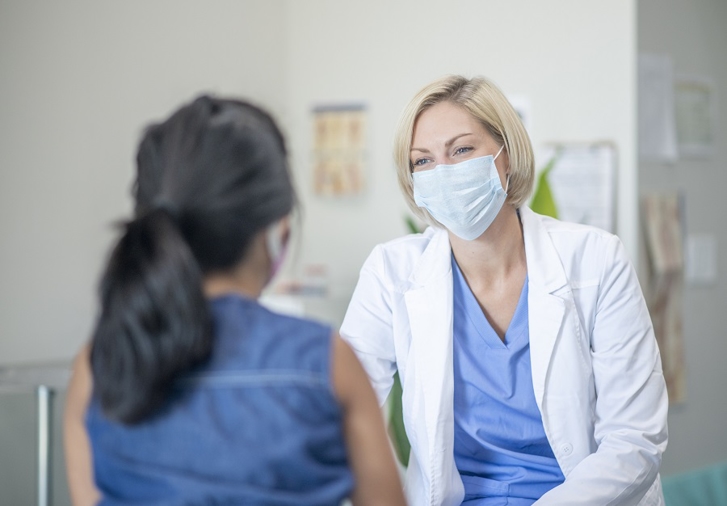Cervical Health Month: Who needs a Pap smear and how often?
Jan 19, 2021

Each year, Cervical Health Month emphasizes that there are clear steps women can take to prevent cervical cancer. One of these steps is to get regular Pap smears. But how often do women need these screenings?
The importance of Pap tests
Pap smears are one of the best tools available for preventing cervical cancer. These tests evaluate whether a woman has cervical cell changes that could potentially turn into cancer. When we catch these cells in this early stage, we can provide treatment before cancer even develops.
Getting regular Pap tests is crucial—overwhelmingly, the women who do have cervical cancer are those who have not gotten regular Pap screenings. Despite the benefits of these tests, many women don’t get screened as often as they should.
Guidelines for women in their 20s
Women should begin regular Pap screening at age 21. Typically, women should continue getting a Pap test every three years until the age of 29. If the test results show any abnormalities, a healthcare provider may recommend additional screenings to rule out precancerous cells.
Guidelines for women ages 30-65
After the age of 30, women have a few options for cervical cancer screening. A healthcare provider can recommend the best strategy based a woman’s individual risk profile and previous Pap results.
- Pap tests: Women with normal test results may continue Pap testing every three years.
- HPV tests: HPV tests check for human papillomavirus, the virus known to lead to cervical cell changes.
- HPV and Pap tests: This is called co-testing. If women receive normal results from both a Pap test and an HPV test, a healthcare provider may recommend getting both tests every five years.
What to do after 65
If you have had normal screening results for several years, healthcare providers may advise that you discontinue Pap screenings after age 65. You may also stop screening tests if you have had your cervix removed due to a total hysterectomy.
Are there cases when I need testing more often?
Even if you do receive abnormal test results, it does not automatically mean that you’ll get cervical cancer. Abnormal test results may indicate changes caused by HPV. Or, if your Pap results are unclear, it could be related to changes like pregnancy or menopause.
If your Pap results are either abnormal or unclear, a healthcare provider can advise you on the best next steps. You may need another screening sooner than the three-year mark, or your doctor may advise you on other treatments. Most of the time, when we catch abnormal cervical cells early, they do not turn into cancer.
What else can I do to prevent cervical cancer?
Along with Pap tests, getting an HPV vaccination has a significant impact on cervical cancer prevention. In fact, the HPV vaccine is the first cancer-preventing vaccine we have. The immunization is most powerful when given before the age of 26, but women can still benefit from vaccination up to the age of 45.
Getting regular Pap screenings is a crucial factor in your ongoing wellness. Stay on top of your health by finding a provider near you.

